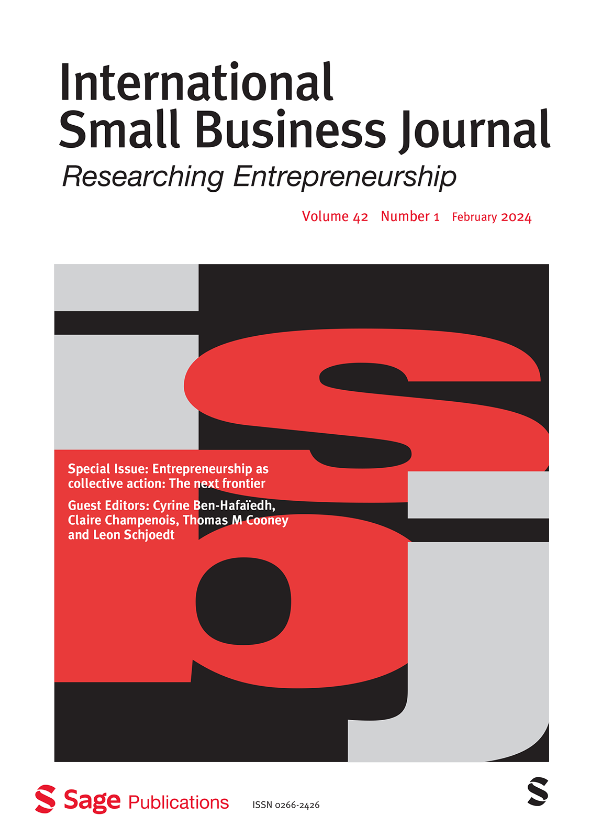需要修改?创业中性别角色刻板印象评估量表的社会建构主义视角
IF 3.9
2区 管理学
Q1 Business, Management and Accounting
International Small Business Journal-Researching Entrepreneurship
Pub Date : 2023-04-25
DOI:10.1177/02662426231166634
引用次数: 0
摘要
本文将当代关于谁和什么构成创业的观点与确定与创业相关的性别角色刻板印象的既定尺度中捕获的维度进行了比较。在此过程中,我们对诸如沙因描述性指数(SDI)、本姆性别角色量表(BSRI)和个人属性问卷(PAQ)等量表的及时性、情境化和预先确定性的持续争论做出了回应。我们的实证研究包括422个由年轻人提供的创业理想描述,我们使用定量内容分析对其进行分析。参与者的认知与性别角色刻板印象量表中捕获的项目之间的比较显示只有部分重叠。虽然提到了男性特质,但我们发现SDI、BSRI或PAQ没有涵盖企业家的各种雌雄同体特质(如激情、团队合作精神、学习意愿)。在此基础上,我们可以得出一些关于如何通过未来的研究来修订现有量表的建议。本文章由计算机程序翻译,如有差异,请以英文原文为准。
Revision needed? A social constructionist perspective on measurement scales for assessing gender role stereotypes in entrepreneurship
This article compares contemporary views of who and what constitutes entrepreneurship with dimensions captured in established scales for determining gender role stereotypes associated with entrepreneurship. In so doing, we respond to ongoing debates about the timeliness, contextualisation and predetermination of scales, such as Schein’s Descriptive Index (SDI), Bem’s Sex Role Inventory (BSRI) and the Personal Attribute Questionnaire (PAQ). Our empirical study consists of 422 descriptions of an entrepreneurial ideal provided by a sample of young adults, which we analysed using quantitative content analysis. The comparison between participants’ perceptions and the items captured in the gender role stereotype scales shows only a partial overlap. Although masculine qualities are mentioned, we find various androgynous (e.g., passion, team player, willingness to learn) qualities of entrepreneurs not covered in SDI, BSRI or PAQ. Based upon this, we can derive several recommendations on how established scales can be revised through future research.
求助全文
通过发布文献求助,成功后即可免费获取论文全文。
去求助
来源期刊
CiteScore
10.80
自引率
8.50%
发文量
49
期刊介绍:
The International Small Business Journal (ISBJ) is a leading peer-reviewed journal renowned for publishing high-quality original research papers on small business and entrepreneurship. It prioritizes research-based studies that contribute to theory development, critical understanding, and policy formulation related to small firms.
ISBJ papers encompass theoretical, methodological, and empirical studies from various disciplines and perspectives, aiming for research excellence in the field. The journal provides a critical forum for world-class contributions analyzing entrepreneurship and entrepreneurial behavior.
This refereed journal is valuable to academics, policymakers, analysts, government and business officials, small business representative bodies, and support agencies seeking to gain insights into the sector, trade, business institutions, and related matters.

 求助内容:
求助内容: 应助结果提醒方式:
应助结果提醒方式:


